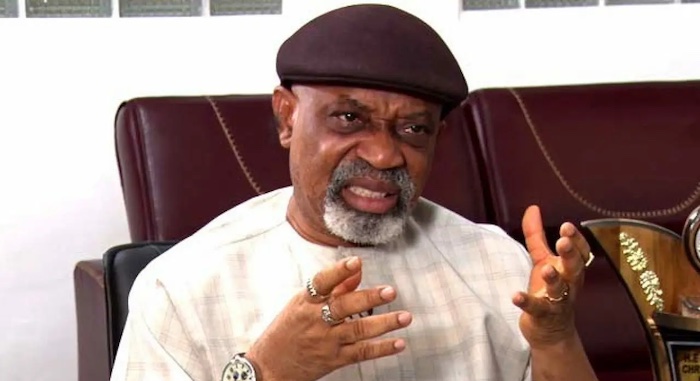Chris Ngige, the minister of labour and employment, states that his monthly pay after taxes is N942,000.
In an interview with Channels Television on Monday, Ngige stated that he was not entitled to any allowance as a minister other than when travelling on official business.
“My monthly remuneration is N942,000. This is my compensation with My PA. “Gross total after taxes, including my food, my transportation, the transportation of one assistant, the salary of my gardener, and my cook,” stated the labour minister.
All of them are consolidated. After massive taxation, I was paid N942,000. This is the case for every minister you encounter. The special advisers receive roughly the same amount.
“The provisions are worthless. As with every other public officer, duty tour allowance is available if you travel.
Ngige remarked that the federal government recently reevaluated the travel allowances for ministers, permanent secretaries, and others.
“It was revised to N100,000 for a minister, and I believe N75,000 for ministers of state; N70,000 for permanent secretaries, and so on. Level one was an evaluation of everyone’s work, not just ours,” he said.
Speaking on the issue of minimum wage, the labour minister stated that the administration of President Muhammadu Buhari will not increase worker salaries before leaving office, adding that the issue of worker salaries will be addressed by the incoming administration.
“I am confident that the incoming administration of Asiwaju Bola Ahmed Tinubu will continue along the same path and make the necessary adjustments. He is a superintendent of finances. He effectively administered the finances of Lagos. He paid the salaries that were due, as well as an additional sum for the judicial employees in Lagos. I have absolutely no concern about that,” Ngige stated.
In response to the problem of unemployment, the minister of labour stated that the creation of jobs is a “cross-cutting” issue that should not be left to the public sector alone.
Ngige ascribed the difficulty to the decrease in foreign direct investments.
“The main point is that employment creation is interdisciplinary. It is not exclusive to the public sector,” he said.
“Everyone believes that the government is responsible for creating employment. If we are not employed by a federal ministry or government agency, we are unemployed. “No, there is a private sector.”
